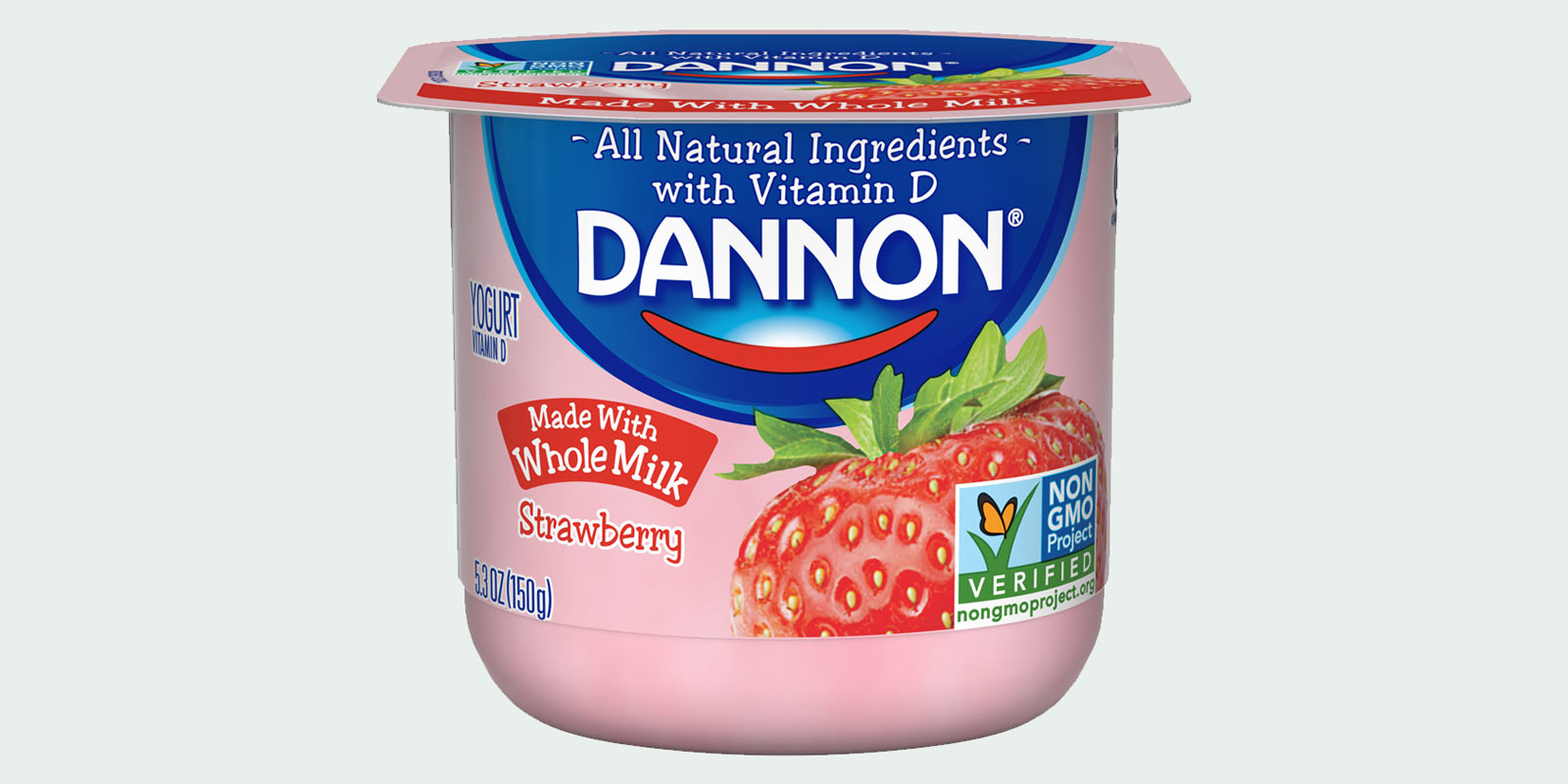Leading U.S. yogurt maker Dannon is moving according to plan on its pledge to source non-GMO ingredients for its products and to use milk from non-GMO fed cows. The company reached a significant milestone recently, achieving Non-GMO Project verification of several Dannon yogurt and “Danimals” smoothie products.
Non-GMO feed challenge
In 2016, Dannon announced its ambitious “Dannon Pledge,” which included commitments to use natural, non-GMO ingredients in its yogurt products, source non-GMO feed for its dairy cows, provide GMO transparency to consumers, and use more sustainable agriculture practices in its milk supply.
One of the biggest challenges was said to be sourcing enough non-GMO feed to meet the needs of Dannon’s dairy producers. An estimated 90 percent of feed produced in the U.S. is derived from genetically modified crops such as corn, soy, and alfalfa. There were doubts that enough non-GMO feed was available. Dannon CEO Mariano Lozano had described the feed initiative as a “massive undertaking,” involving the conversion of an estimated 80,000 acres to non-GMO feed crops.
“It seemed at the time it would be a challenge because we hadn’t done it before,” says Michael Neuwirth, Dannon’s senior director of external communication. “We had to use creativity, insights, and resources to find solutions.”
Dannon used a combination of approaches including purchasing non-GMO feed on the open market, using feed supplies of their own farmers, and finding farmers who grow non-GMO feed grains.
One of Dannon’s largest milk suppliers, Kansas-based McCarty Family Farms, successfully worked with its farm partners and had other farmers offer to sell them non-GMO feed.
“Thus far the challenges associated with sourcing non-GMO feed have been few and far between,” said Ken McCarty, co-owner and manager of McCarty Family Farms, a few months ago.
But Dannon will face another challenge next year when it moves its Oikos Greek yogurt products to non-GMO production because Greek yogurt uses three times as much milk as traditional yogurt.
Still, Neuwirth is confident. “We now have the benefit of figuring out the feed issue for Danimals and Dannon. We are more experienced.”
Sourcing milk from non-GMO fed cows separates Dannon from its biggest competitor, Chobani, which uses non-GMO ingredients but not non-GMO feed. Chobani announced a commitment to source non-GMO feed in 2014 but has not achieved that goal.
Non-GMO Project verification
Using non-GMO feed is one of the requirements for Non-GMO Project verification, which Dannon recently achieved for several products. These include Dannon Whole Milk Fruit Yogurt in eight flavors, Dannon Whole Milk Plain Yogurt in quart containers, and Danimals Smoothies in six flavors.
Vincent Crasnier, Dannon Pledge lead, says the Non-GMO Project verification has gone smoothly.
“We’ve been learning the process as we’ve progressed. We have a sophisticated process but we have been pleased with the process. Segregation was the most important thing, from the seed to the cup.”
Dannon had to install stainless steel storage tanks to keep non-GMO milk segregated from other milk supplies. The company also replaced GMO-risk beet sugar with cane sugar and substituted some preservatives such as potassium sorbate and malic acid with lemon juice concentrate to simplify the ingredients for a “cleaner” label.
Dannon is well on its way to achieving its Pledge goals. By the end of this year, all Dannon brand products will contain only non-GMO ingredients and will be made with milk from cows fed non-GMO feed. Products from the Oikos and Danimals brands will follow by the end of 2018. These three brands represent about half of Dannon’s U.S. sales volume. According to Neuwirth, Dannon’s market share has increased since the company announced the Pledge last year.
Another aspect of Dannon’s Pledge is GMO transparency. Since the end of 2016, Dannon has started labeling all of its products containing GMO ingredients. These products contain the label statement “Partially produced with genetic engineering.”
Last year, several major agriculture groups, including the National Milk Producers Federation, American Farm Bureau Federation, American Soybean Association, and others sent a letter to Dannon criticizing the company’s pledge about their non-GMO commitment.
Dannon defended its stance. “We value open discussions and strive to be transparent with consumers about what matters to them,” Neuwirth says. “We’ve been clear about our belief that the currently approved GMOs are safe. We also believe we can promote advanced sustainable practices with non-GMO crops as well.”
Further, Neuwirth says the Dannon Pledge is “about doing right by our consumers and farmers and also our business. It’s helping us provide more options to shoppers, and they recognize and appreciate that and are responding to it. It’s been a great journey for us.”





